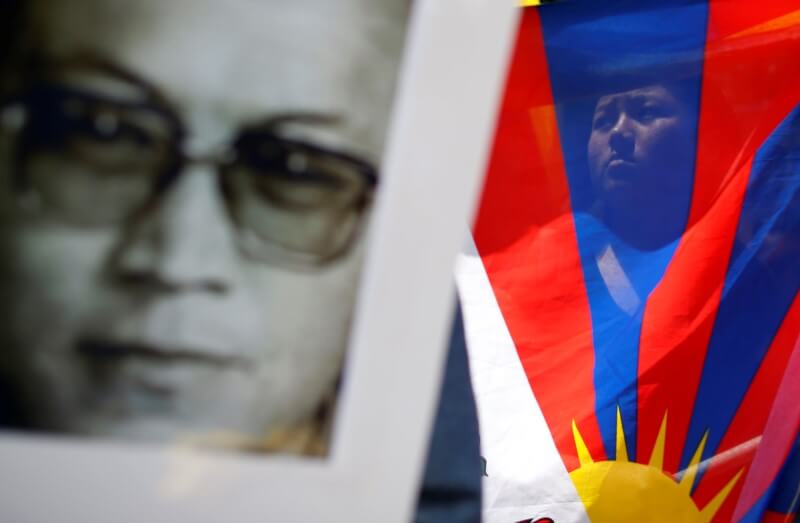By Abhishek Madhukar
DHARAMSALA, India (Reuters) – The niece of a leading Buddhist monk who died in a Chinese jail has fled to India to tell the world she suspects he was a victim of torture, and disbelieves the official version that he died of a heart attack. Tenzin Delek Rinpoche, 65, had been serving a life sentence for “crimes of terror and incitement of separatism” when his family was told on July 12, 2015, that he had died in prison in China’s southwestern city of Chengdu. Only a week later did state media report that Tenzin Delek, a supporter of exiled spiritual leader the Dalai Lama, had died of a heart attack. His body was not returned to the family, and was instead cremated. Now his 26-year-old niece, Nyima Lhamo, has undertaken a grueling journey to India to issue an appeal for justice – leaving behind close relatives, including her own six-year-old daughter.
In an interview on Thursday in the hill town of Dharamsala, where a self-styled Tibetan government in exile is based, she said Chinese officials denied relatives access to Tenzin Delek for nearly two years before his death. When her mother and aunt were finally summoned on July 1, 2015, they were kept waiting.
“Eventually, on July 12, they were told that Rinpoche had died. We were given different times of death by prison staff and we were doubtful,” Lhamo told Reuters.
Previously, Tenzin Delek told Lhamo’s mother he had been tortured, including being beaten and thrown to the ground, and doused with hot and cold water. “Officers were constantly torturing him and taunting him,” she said at the newly built, and nearly empty, Tibetan Reception Centre for Refugees. A security crackdown has cut the yearly flow of Tibetan refugees to India from 2,500 in 2008 to just a few dozen now.
INTERNATIONAL APPEALS
The United States had urged China to make public the circumstances of Tenzin Delek’s death, while a United Nations rights watchdog later cited his case in a call to end torture in Chinese police stations and prisons. China’s Foreign Ministry did not immediately respond to a request for comment. Beijing routinely denies allegations of human rights abuses, especially in Tibet, where it says its rule has bought prosperity and development. Lhamo reached the prison on July 14, when officials again stonewalled on the cause of Tenzin Delek’s death and refused to share any medical reports. They allowed her to see his body only after she tried to hang herself with her scarf outside the jail. “When they finally allowed us to see the body…(it) was covered with monk’s robes and we could not see much, but I saw his lips were dark,” said Lhamo, who spoke with detachment and appeared exhausted. “The monks who had cleaned Rinpoche’s body had mentioned that the nails were black and there was a abnormal soft hollow at the back under his head.” His body was cremated the following day. The Central Tibetan Administration, the Dharamsala-based political leadership of exiled Tibetans, said the circumstances of Tenzin Delek’s death remained “clouded”.
“We would like to have a very independent study and investigation into his death so that there can be a dignified closure,” said CTA spokesman Tashi Phuntsok, expressing “full solidarity” with Lhamo. The monk was one of the most senior supporters of the Dalai Lama still in Chinese-ruled Tibet. The spiritual leader went into exile in 1959 after a failed uprising.
China has accused the Nobel peace laureate of seeking to use violent means to establish an independent Tibet – a charge his followers deny, saying they seek real autonomy by peaceful means.
(Additional reporting by Ben Blanchard in Beijing; Writing by Douglas Busvine; Editing by Clarence Fernandez)
Tibetan monk who died was tortured, says niece who fled China

By Abhishek Madhukar


















